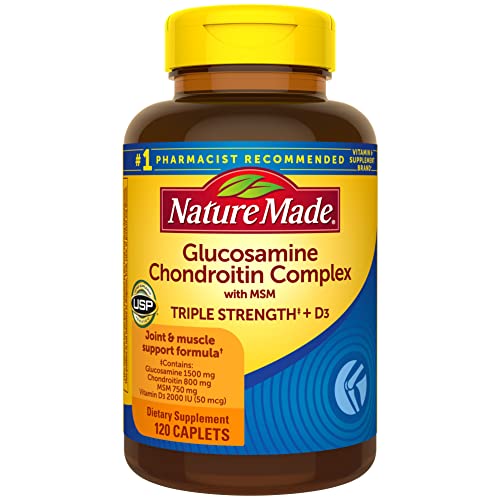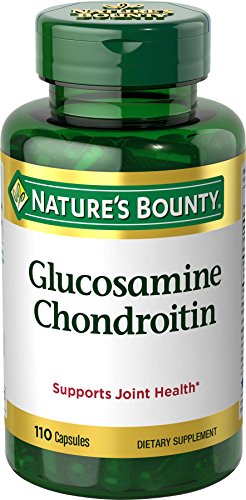Glucosamine May Lower Sepsis Risk: Study Finds
Quick Summary: A long-term study found that people who regularly take glucosamine may have a lower risk of developing sepsis, a serious infection. They also had a better chance of survival if they did get sepsis.
Does Glucosamine Help Prevent Sepsis?
This research suggests a link between taking glucosamine and a reduced risk of sepsis. Sepsis is a life-threatening condition caused by the body's overwhelming response to an infection. The study showed that people who used glucosamine regularly had:
- 23% lower chance of developing sepsis.
- 35% lower chance of dying within 28 days of a sepsis diagnosis.
Study Details
- Who was studied: Over 466,000 adults in the UK, aged 40-69.
- How long: Researchers followed the participants for 16 years.
- What they took: Participants reported if they regularly took glucosamine supplements. The exact dosage wasn't specified.
What This Means For You
If you take glucosamine for joint pain or other reasons, this study suggests a possible added benefit: a lower risk of sepsis. However, it's important to remember:
- This study doesn't prove glucosamine prevents sepsis. It shows an association, meaning people who took it were less likely to get sepsis. More research is needed.
- Talk to your doctor. Always discuss any supplements you take, especially if you have other health conditions.
- Glucosamine isn't a replacement for medical care. If you suspect you have an infection or sepsis, seek immediate medical attention.
Study Limitations
It's important to understand the limitations of this study:
- It's not a controlled experiment. Researchers observed what happened to people who already took glucosamine. They didn't give some people glucosamine and others a placebo.
- Reliance on self-reporting. The study relied on people reporting their glucosamine use, which may not always be accurate.
- Dosage unknown. The study didn't specify how much glucosamine people took.
- Mostly White British participants. The results may not apply to everyone.
- Doesn't explain how it works. The study didn't investigate the biological mechanisms behind the potential benefits.
Technical Analysis Details
Key Findings
The study found that habitual glucosamine users had a 23% lower risk of developing sepsis (hazard ratio [HR] 0.77, 95% confidence interval [CI] 0.68–0.87, p<0.001) compared to non-users. Additionally, glucosamine users experienced 35% lower 28-day mortality after sepsis (HR 0.65, 95% CI 0.50–0.85, p=0.002). These associations remained significant after adjusting for age, sex, BMI, smoking, alcohol use, and comorbidities.
Study Design
This was a prospective cohort study analyzing data from the UK Biobank, involving 466,006 participants aged 40–69 years at baseline (recruited 2006–2010). Researchers tracked glucosamine use (self-reported) and sepsis incidence/mortality over 16 years using hospital records and death registries. Cox proportional hazards models were employed to assess associations, with subgroup analyses for osteoarthritis patients and those with chronic inflammation.
Dosage & Administration
The study did not specify exact glucosamine dosages. Participants reported "habitual use" of supplements, typically in combination with chondroitin. Administration frequency and duration were unspecified, relying on self-reported adherence.
Results & Efficacy
- Sepsis incidence: 1,174 cases in non-users vs. 498 in users (per 100,000 person-years).
- 28-day mortality after sepsis: 18.6% in non-users vs. 13.4% in users.
- Adjusted models showed consistent risk reduction across subgroups, including those with osteoarthritis (HR 0.72, 95% CI 0.61–0.85).
- Effect sizes were statistically significant (p<0.05 for all primary outcomes), suggesting robust anti-inflammatory and immunomodulatory effects in real-world populations.
Limitations
- Observational design: Cannot confirm causality; residual confounding (e.g., unmeasured health behaviors) may exist.
- Self-reported usage: Potential misclassification bias due to reliance on participant recall.
- Lack of dosage data: Dose-response relationships and optimal administration protocols remain unclear.
- Population homogeneity: 94% of participants were White British, limiting generalizability.
- Mechanistic gaps: The study did not explore biological pathways linking glucosamine to sepsis risk reduction.
Clinical Relevance
For individuals using glucosamine for joint health, this study suggests potential secondary benefits in reducing sepsis risk and improving survival outcomes. However, as an observational analysis, it does not warrant clinical recommendations without further randomized controlled trials (RCTs). Practitioners should consider these findings hypothesis-generating, particularly for patients with chronic inflammation or sepsis susceptibility. The results align with glucosamine’s documented anti-inflammatory properties but highlight the need for mechanistic studies to validate its immunoprotective role.
Word count: 398
Original Study Reference
Habitual Glucosamine Use and Risk of Sepsis: A 16-Year Follow-Up Study.
Source: PubMed
Published: 2025-06-12
📄 Read Full Study (PMID: 40504933)




